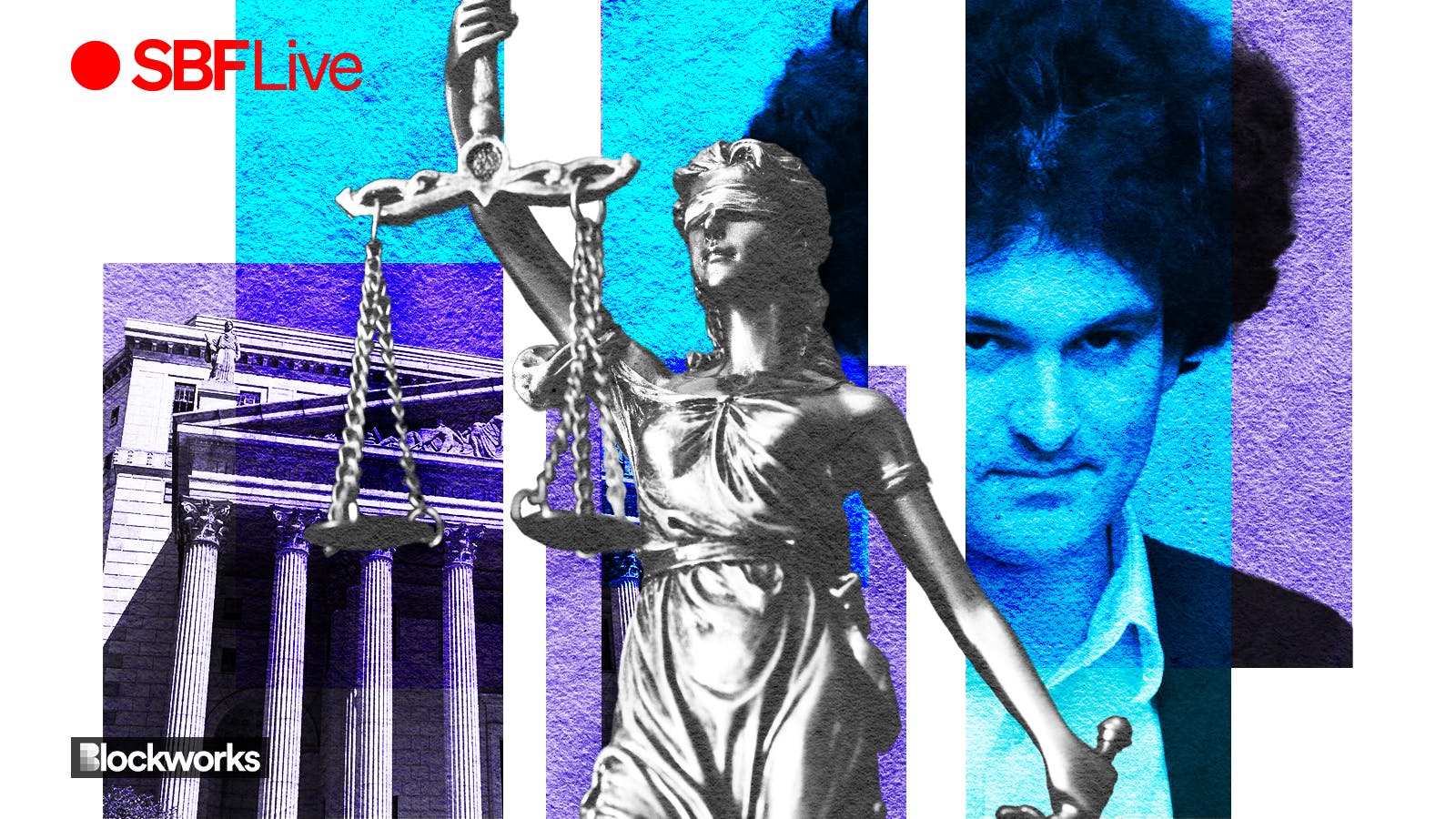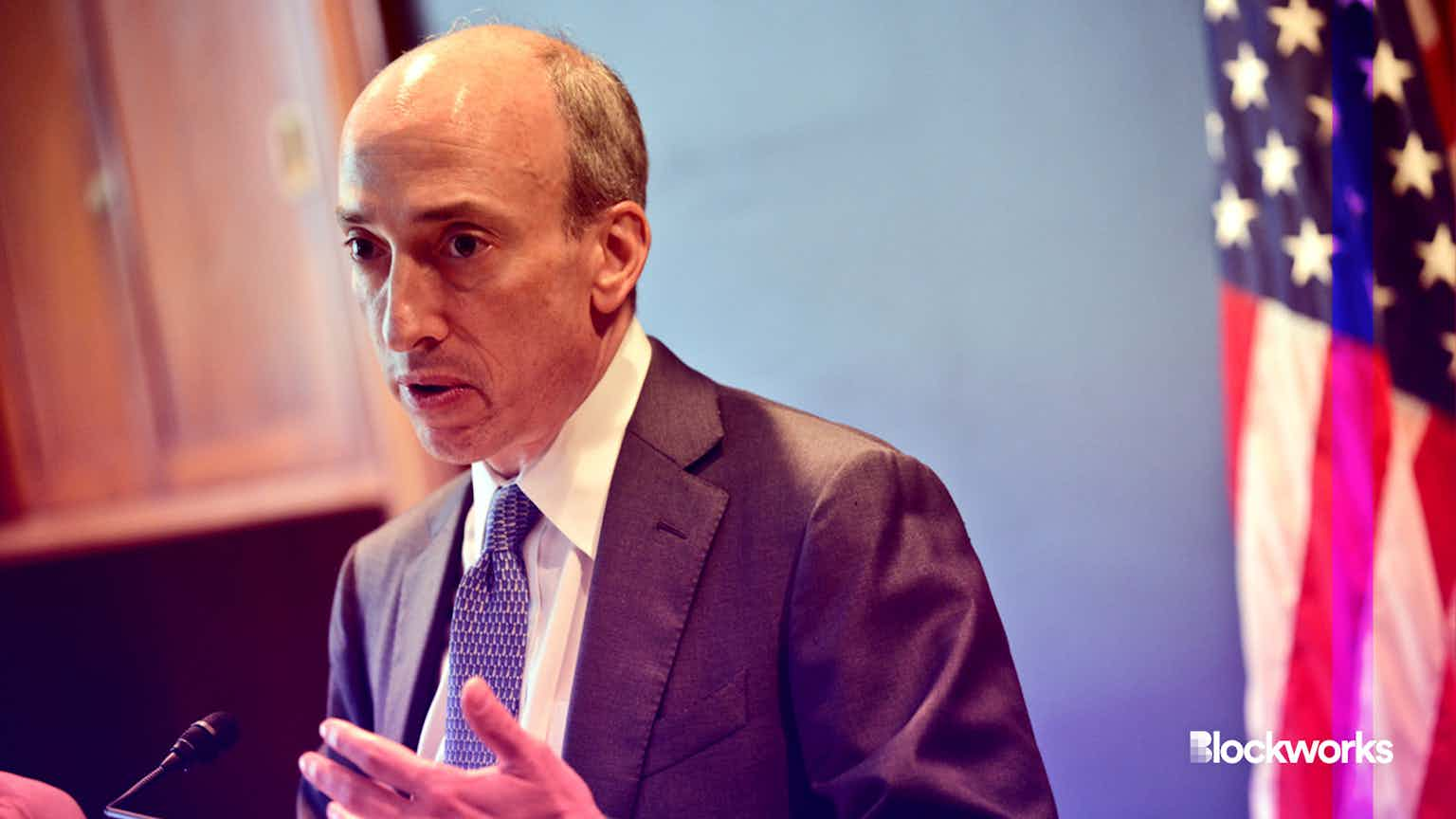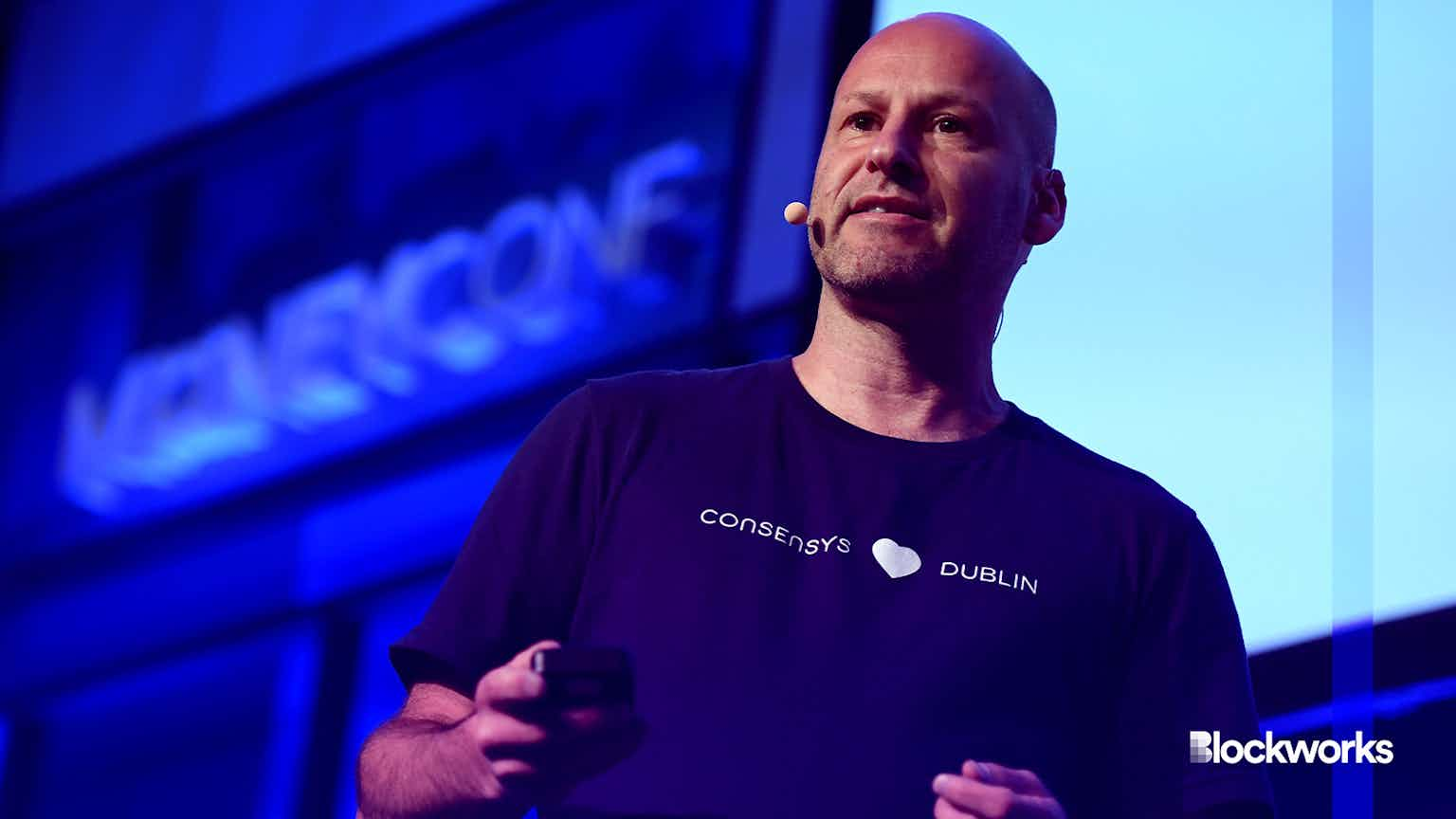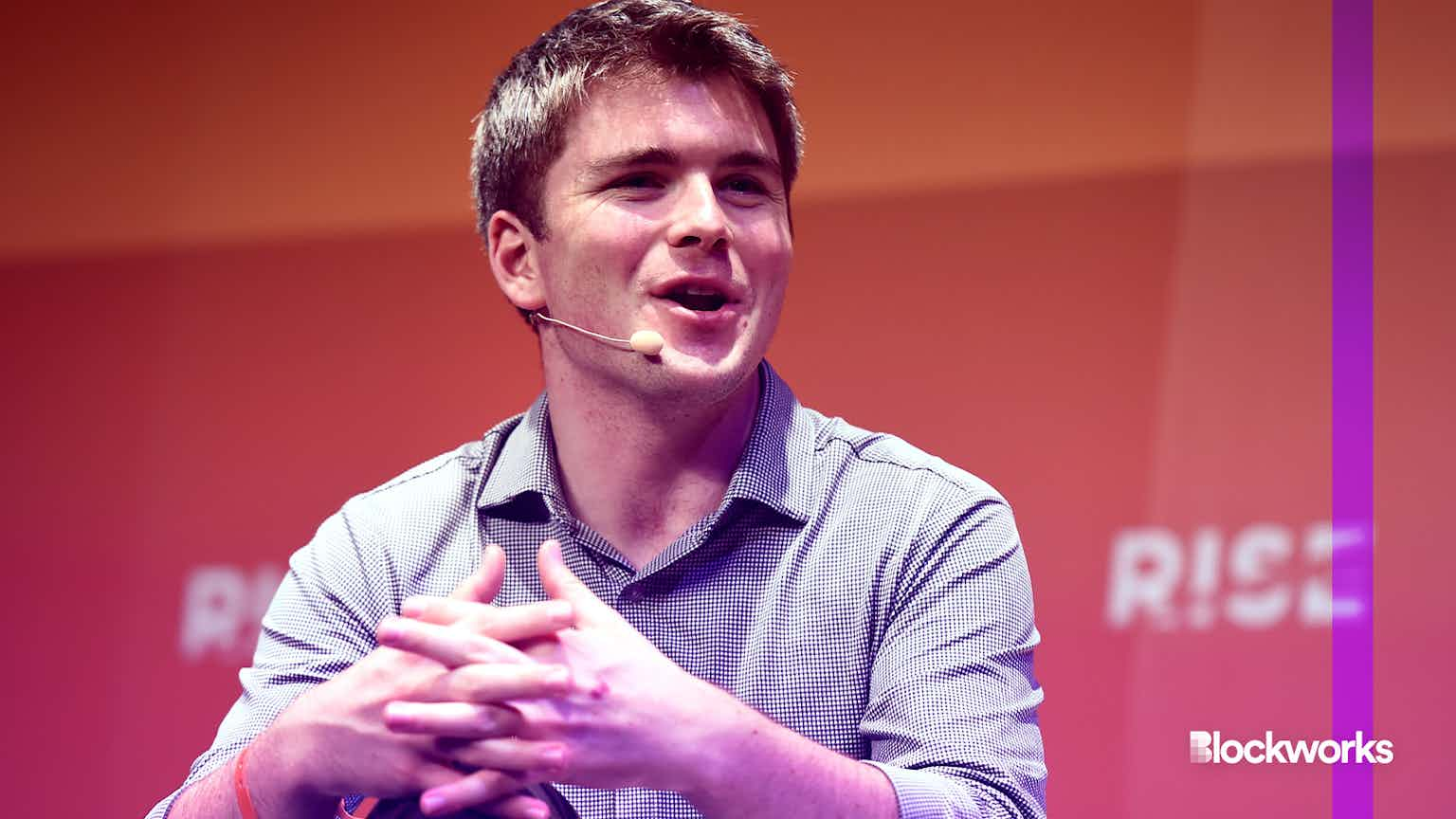Given one more chance to defend himself, SBF blew it
The former FTX CEO was sentenced to 25 years in jail today — and his last words before the court probably did nothing to reduce his jail time

Artwork by Crystal Le

Today was the official end of the Sam Bankman-Fried trial.
At least, the last official day until the appeal — if it ever comes to that — as Bankman-Fried chose to end the months-long trial process with another rambling word salad about all of his mistakes — and about none of his crimes.
Bankman-Fried’s last trial day took place in the same courtroom in Lower Manhattan, but with a much more colorful group of characters than usual.
Besides the bizarre family trio who drove down from Boston to sit in the actual courtroom, I sat in the overflow room alongside Michael Lewis, BitBoy and his former mistress — now girlfriend — and across from latecomer “choose rich” NFT Nick.
While it’s important to note that everyone has the right to maintain their innocence in a court of law, even after a guilty conviction (and especially if an appeal is in the future), I’d argue that Bankman-Fried squandered his last chance to address the court (and its peculiar occupants, of course).
Read more: SBF sentenced to 25 years in prison
I’ve already written about his almost incomprehensible testimony at trial — or what the judge referred to today as a performance that he had never seen before in his 30 years on the bench. Bankman-Fried ultimately opted to stay true to incoherent form in his final speech.
This last chance to address the judge is an important one in the judicial system. It’s known as an allocution statement, and it shouldn’t be overlooked as a real way to affect a judge’s sentencing. Allocution statements let the defendant humanize themselves, or as said in the original court case that federally protects these very statements, “the most persuasive counsel may not be able to speak for a defendant as the defendant might, with halting eloquence, speak for himself.”
Or, as one US court district judge wrote, the allocution statement is the “emotional focal point of a case.”
While I didn’t expect anything as drastic as Bankman-Fried suddenly admitting his guilt and asking for forgiveness, I did think we’d get a middleground.
Instead, we got roughly twenty minutes of explanation about how good Bankman-Fried’s FTX colleagues were at their jobs — specifically praising Caroline Ellison’s ability to write employee reviews — followed by him thanking the Bahamian regulators for their work.
Bankman-Fried did say he was sorry for all of his mistakes, but he sprinkled those sorries with his inevitable insistence that FTX customers and investors could be made fully whole again — if only the bankruptcy proceedings acted differently.
In a nutshell, Bankman-Fried stuck to the same tune he’s been singing since November 2022: Everything that happened was a series of mistakes, that he’s really sorry about said mistakes, and that he’d like to help fix them himself but the meddlesome bankruptcy court has gotten in the way.
This defense strategy didn’t work during the trial. In fact, it led to a guilty verdict with a maximum sentence of 105 years. There’s no reason to think that this “I made a mistake” strategy will work during an appeal — especially given that Judge Lewis Kaplan today doubled down on the numerous instances of Bankman-Fried perjuring himself throughout the trial while trying out this very defense.
So, at the close of this chapter, I’m left with a feeling that Bankman-Fried still doesn’t quite get what this trial was all about. He appears to continue to think of himself as a victim of unfortunate circumstances that he could have righted if he had more time — and nothing demonstrates that more than his blatantly non-repentant final statement.
As Judge Kaplan said during the sentencing, Bankman-Fried never offered a “word of remorse for the commission of terrible crimes” during neither the trial nor today’s speech before the court.
In the end, Bankman-Fried chose to leave the judge, the courtroom, his family and the FTX victims with his own view of what happened: “There are no losses, there were never any losses.”
You have to give a defendant a right to say what they want in court, but Bankman-Fried’s choice of final speech was an unfortunate tactic to take when decades of prison time are on the line.
Who knows what his sentencing could have been if he had decided to actually make his speech a humanizing, emotional focal point, instead of a soapbox to yet again peddle his own version of events.
I don’t care much about tech, I don’t care a whole lot about finance, either. I care about writing stories and watching weird things unfold. And that’s why I’ve ended up in crypto.
But because I’m missing that passion for what crypto and blockchain are all about — finance, tech, privacy, yadda yadda — I’m going to write instead about what I am actually interested in. Everything about crypto that has very little to do with crypto.
That’s what this column will be about. All the tangential stories that come out of the blockchain and crypto space, what I think about them, and how I navigate it all as a skeptical former Russian literature major.
It’s precisely my perch as an outsider that lets me do what I do: Opine on all sides of any crypto issue, no strings attached, no skin in the game.
If you want to talk crypto with me, let’s go off topic.
Start your day with top crypto insights from David Canellis and Katherine Ross. Subscribe to the Empire newsletter.





